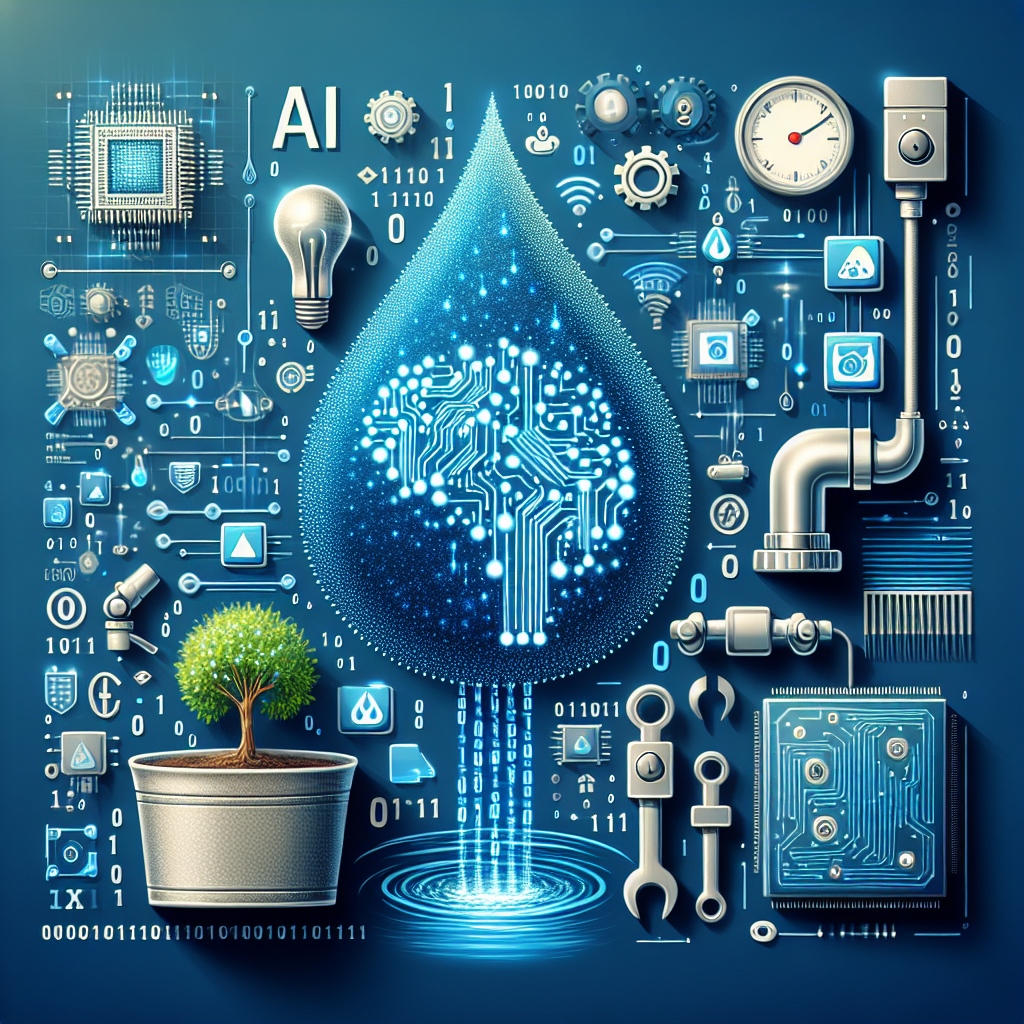Water is one of the most precious resources on our planet, and with the increasing demands of a growing global population, water conservation has become more important than ever. In recent years, artificial intelligence (AI) has emerged as a powerful tool in the effort to conserve water and manage our water resources more effectively.
AI development in the field of water conservation has the potential to revolutionize the way we manage water resources. By using AI technologies such as machine learning and data analytics, we can analyze vast amounts of data to gain insights into water usage patterns, identify areas of waste, and optimize water management strategies. AI can help us predict water demand, detect leaks in water infrastructure, and even automate water conservation measures.
One of the key ways AI is being used in water conservation is through the development of smart water systems. These systems use sensors and advanced analytics to monitor water usage in real-time, identify leaks and inefficiencies, and automatically adjust water flow to optimize usage. By using AI to continuously monitor and adjust water usage, smart water systems can help reduce water waste and improve overall water efficiency.
Another important application of AI in water conservation is in the field of precision agriculture. By using AI to analyze data from sensors, satellites, and other sources, farmers can optimize their irrigation practices to reduce water usage while maximizing crop yields. AI can help farmers determine the optimal amount and timing of water needed for each crop, reducing water waste and increasing agricultural productivity.
AI is also being used to monitor and manage water quality. By analyzing data from water quality sensors and other sources, AI can detect contaminants in water sources, predict water quality changes, and alert authorities to potential water quality issues. This can help prevent waterborne diseases and ensure safe drinking water for communities.
In addition to these applications, AI is also being used to improve water resource management at a larger scale. By analyzing data from satellite imagery, weather forecasts, and other sources, AI can help predict droughts, floods, and other water-related disasters. This information can help governments and water authorities better plan for and respond to water crises, reducing the impact on communities and the environment.
Overall, the role of AI in water conservation is becoming increasingly important as we face growing challenges in managing our water resources. By harnessing the power of AI technologies, we can improve water efficiency, reduce waste, and ensure a sustainable water supply for future generations.
FAQs:
Q: How does AI help in water conservation?
A: AI helps in water conservation by analyzing data to identify water usage patterns, detect leaks, optimize water management strategies, and automate water conservation measures. AI technologies such as machine learning and data analytics can help improve water efficiency and reduce waste.
Q: What are some examples of AI applications in water conservation?
A: Some examples of AI applications in water conservation include smart water systems that monitor and adjust water flow in real-time, precision agriculture systems that optimize irrigation practices, and water quality monitoring systems that detect contaminants in water sources.
Q: How can AI help in predicting water-related disasters?
A: AI can help predict water-related disasters by analyzing data from satellite imagery, weather forecasts, and other sources to identify patterns and trends that may indicate droughts, floods, or other water-related disasters. This information can help governments and water authorities better plan for and respond to water crises.
Q: What are the benefits of using AI in water conservation?
A: The benefits of using AI in water conservation include improved water efficiency, reduced water waste, better water quality management, and enhanced water resource management at a larger scale. AI technologies can help us address the challenges of managing our water resources more effectively.
Q: How can individuals contribute to water conservation efforts?
A: Individuals can contribute to water conservation efforts by practicing water-saving habits such as taking shorter showers, fixing leaks in their homes, using water-efficient appliances, and reducing water usage in their daily activities. By being mindful of their water usage, individuals can help conserve water and protect this precious resource for future generations.

